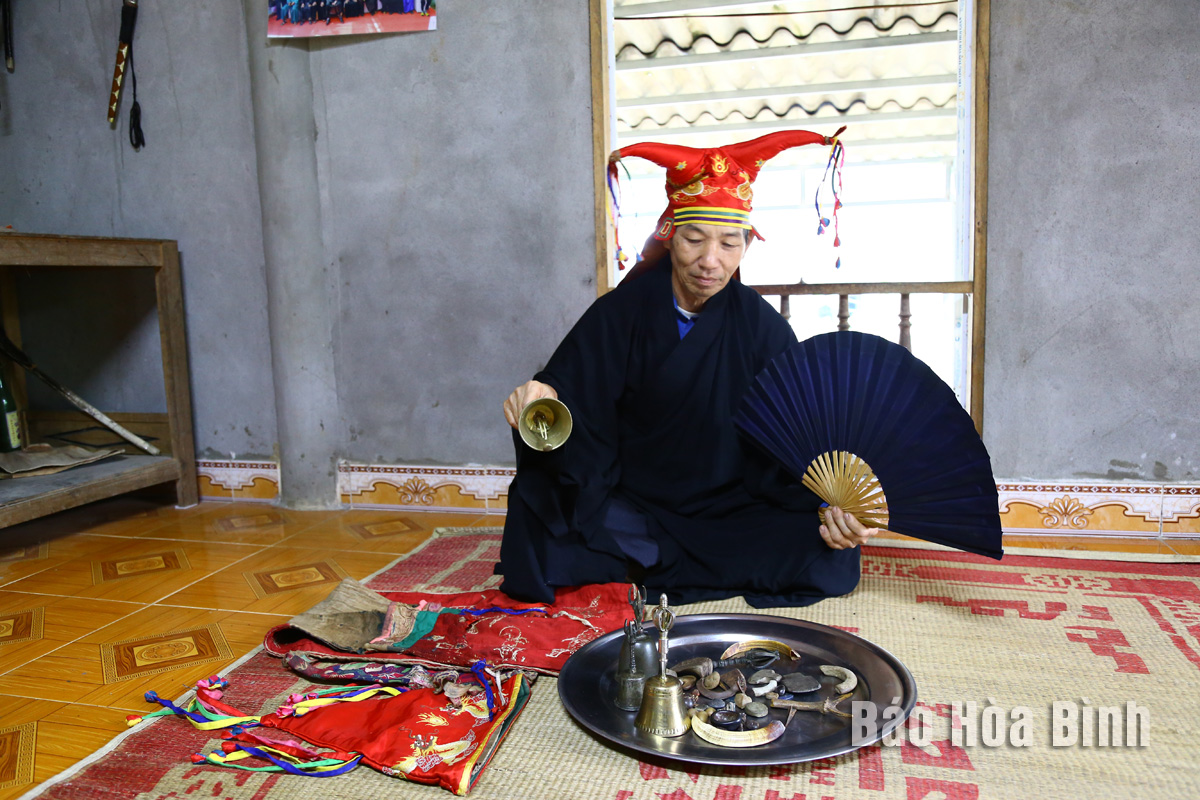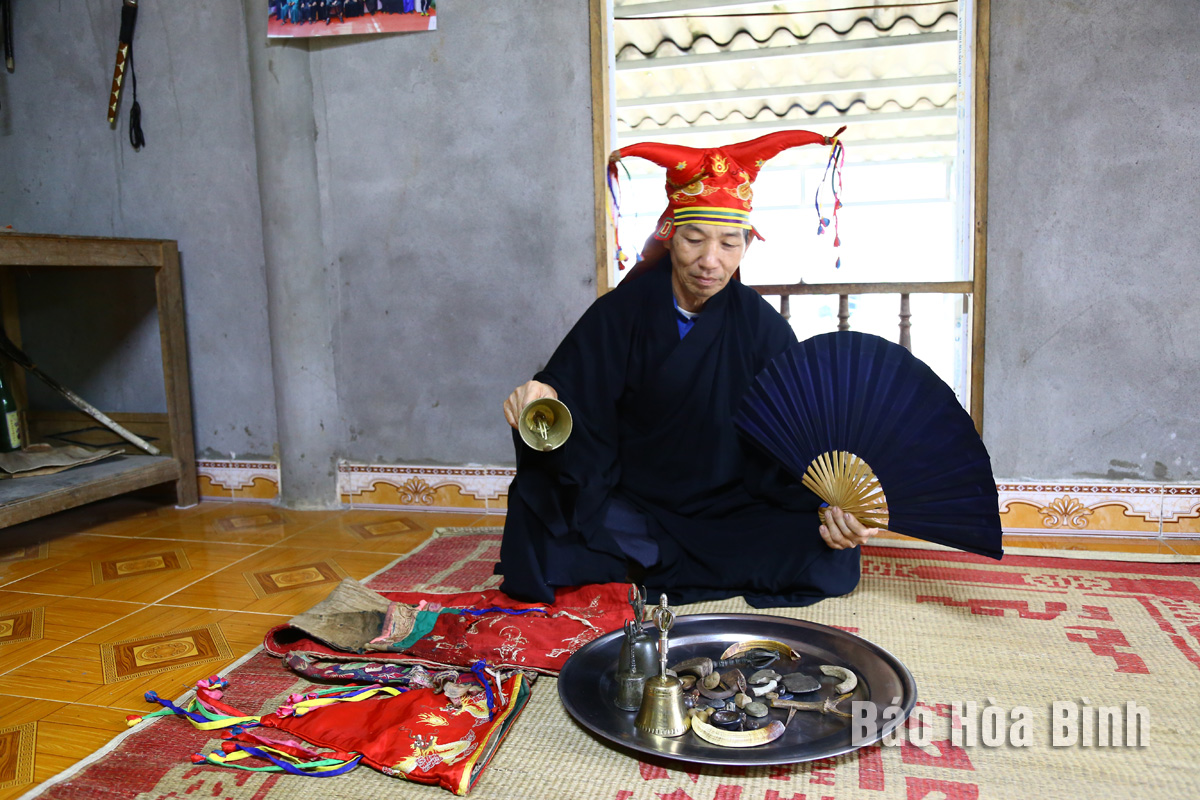
The Government Office with Document No. 2082/VPCP-KGVX, dated March 29, 2024, sent out the opinion of Deputy Prime Minister Tran Hong Ha regarding the submission of the "Mo Muong" and "Cheo art" dossiers to the United Nations Educational, Scientific and Cultural Organization (UNESCO).
Mo master Shaman Bui Van Rum from Rom Co hamlet, Thuong Coc commune, Lac Son district, introduces a set of items used for rituals.
Specifically, along with the "Cheo art", considering the proposal of the Ministry of Culture, Sports and Tourism (MoCST), the assessment opinion of the National Cultural Heritage Council on requesting permission and submitting the national dossier "Mo Muong" for consideration and registration on UNESCO's Lists of Intangible Cultural Heritage, Deputy PM Ha expressed the following opinion:
Agree to submit to UNESCO for consideration and inclusion of the "Mo Muong" intangible cultural heritage, covering the provinces of Hoa Binh, Thanh Hoa, Ninh Binh, Phu Tho, Son La, and Dak Lak, and Hanoi city, into the list of intangible cultural heritage in need of urgent safeguarding; authorise the Minister of Culture, Sports and Tourism to sign the documents as required.
The Vietnam National Commission for UNESCO will preside over and coordinate with the MoCST to carry out necessary procedures to submit heritage dossiers to UNESCO, ensuring compliance with the provisions of the 2003 Convention for the Safeguarding of the Intangible Cultural Heritage and cultural heritage laws.
Mo Muong is a folk performance activity expressed in rituals associated with the spiritual life of the Muong people. The space for performing ritual activities and the mo chants takes place in community life and within each family organising a ceremony. The practitioners of Mo Muong are Mo masters who speak, recite, and sing mo chants during rituals. Mo Muong comprises many mo chants and sections used in specific ceremonies.
With an increasingly vibrant and widespread emulation movement aimed at building cultured residential areas and cultured families, Yen Thuy District has been making steady progress toward improving both the material and spiritual well-being of its people, while fostering a civilized, prosperous, beautiful, and progressive community.
Once lacking recreational spaces and community facilities, Residential Group 2 in Quynh Lam Ward (Hoa Binh City) has recently received attention for the construction of a new, spacious, and fully equipped cultural house. The project followed the model of state support combined with public contributions in both labor and funding.
The "All people unite to build cultural life" movement, which has been effectively integrated with Kim Boi district’s socio-economic development goals, is fostering a lively spirit of emulation across local residential areas, hamlets, villages, public agencies, and enterprises. In addition, through the initiative, traditional cultural values are being preserved and promoted, while community solidarity and mutual support in poverty reduction and economic development are being strengthened.
A working delegation of the Hoa Binh provincial People’s Committee led by its Permanent Vice Chairman Nguyen Van Toan on June 11 inspected the progress of a project to build the Mo Muong Cultural Heritage Conservation Space linked to tourism services in Hop Phong commune, Cao Phong district.
Born and growing in the heroic land of Muong Dong, Dinh Thi Kieu Dung, a resident in Bo town of Kim Boi district, in her childhood was nurtured by the sweet lullabies of her grandmother and mother. These melodies deeply imprinted on her soul, becoming an inseparable part of her love for her ethnic group's culture. For over 20 years, this love for her hometown has driven Dung to research, collect, and pass down the cultural values of the Muong people to future generations.
In the final days of May, the Ethnic Art Troupe of Hoa Binh Province organized performances to serve the people in remote, mountainous, and particularly disadvantaged areas within the province. These were not just ordinary artistic shows, but they were the meaningful journeys aimed at spreading cultural values, enhancing the spiritual life of the people and contributing to the preservation of ethnic minority cultural identities.



